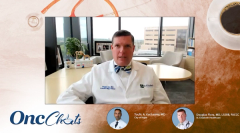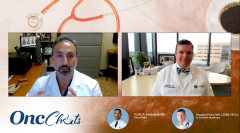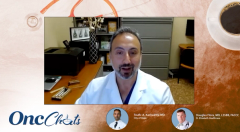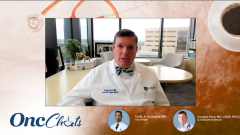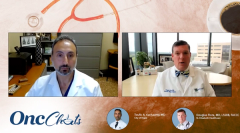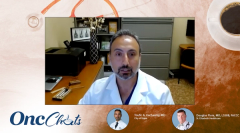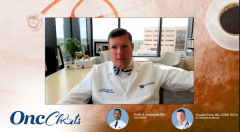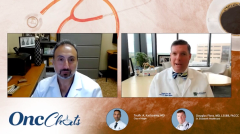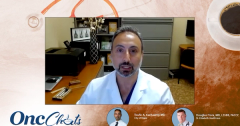
Assessing the Promise of AI in Oncology: Potential for Precision Medicine
In this second episode of OncChats: Assessing the Promise of AI in Oncology, Toufic A. Kachaamy, MD, and Douglas Flora, MD, LSSBB, FACCC, explain how artificial intelligence tools may be leveraged in the oncology field to provide personalized care.
Episodes in this series

In this second episode of OncChats: Assessing the Promise of AI in Oncology, Toufic A. Kachaamy, MD, of City of Hope, and Douglas Flora, MD, LSSBB, FACCC, of St. Elizabeth Healthcare, explain how artificial intelligence (AI) tools may be leveraged in the oncology field to provide personalized care.
Kachaamy: So all of this is converging together to create that inflection point. Is AI in oncology different than AI in other disciplines? We see ChatGPT, Midjourney, and a lot of natural-language-processing AI or image-generative AI. Is AI oncology any different, or is it just another form?
Flora: Both. I think with your experience in the gastrointestinal cancer space, you’ve seen the advent of things like machine learning tools that can help you identify suspicious polyps by image recognition and such. So, certainly, there are things that are very applicable to every field—cardiology, psychiatry, and others. Where oncology might be slightly different is that cancer, as a disease process, is incredibly heterogeneous. It’s not just different types of cancer but heterogeneous tumors and different tumors within the same type of cancer that make it a particularly difficult disease to diagnose and treat.
The goal with the addition of this tool of AI is to take those really complex datasets and analyze that vast amount of data—all the genomics, phenomics, imaging, and pathology—and try and distill it into a more discreet package for oncologists to use. I think it’s useful for all of us; the more complicated the medicine, probably the better the tool, or the more applicable the tool will be, and the faster the uptake hopefully.
Kachaamy: We refer to cancer as “cancer,” but it’s really a few hundred diseases. Do you think AI [may potentially be] more helpful in oncology, because of the complexity of the cancer world?
Flora: I see definite changes there, because we depend upon so many individual datasets—from a pathologist, from a gastroenterologist, from a radiologist, from a lab technician standpoint—and then, you build in all the emotive stuff and the distance to treatment and time to treatment and things like radiation using high-level software. I think oncology is the tip of the spear, and I expect these tools to follow for other fields, as well. However, for those of us who practice oncology, this is a really exciting development that might speed up some of this complexity and make it simpler for us in the field.
Kachaamy: This is perfect for my next question with regard to precision medicine, specifically precision oncology. AI is at a different level there than even oncology. You’re specifically interested in AI and precision medicine. Can you tell me more about that specific area?
Flora: Sure, well I’m sitting one floor above a center for Precision Medicine and Genomic Health at our cancer center, here, just outside of Cincinnati, so this is more than a hobby for me. As we’ve seen in the field of oncology in the past 5 years or so, we’ve really started to apply genomics. As you’re well aware, it’s not just lung cancer anymore, for example; it’s an EGFR exon 19–positive or ALK-positive or ROS1-positive non–small cell adenocarcinoma. That genomic information that we now get from next-generation sequencing is evolving into things like circulating tumor cells and liquid biopsies and other approaches.
Again, the vast amount of data that we’re trying to assimilate quickly in a 20-minute office visit can be fairly daunting. As such, where we see precision oncology stepping into the fold—and hopefully it will eventually just be called oncology because in 2023 everything should be more precise—is the ability to take these tools and augment our own ability to gather and process these large data fields into something that’s more usable and more discreet, combining the electronic record, the path[ology] report, the imaging details, and the nuance of the individual patients to personalize care in a much more efficient and healthier holistic fashion.
Check back on Monday for the next episode in the series.


